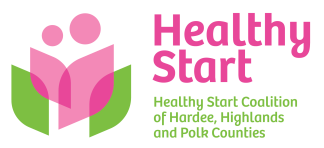Motherhood is a life-changing experience filled with both moments of joy and challenges. One of the most significant challenges many women face is postpartum depression (PPD). Recognizing the signs of PPD is an essential first step toward managing and overcoming it. By understanding this condition, women can take proactive steps toward recovery. It’s critical to remember that support and healing are possible. This challenging phase can lead to a stronger, healthier version of oneself with the proper care and attention.
Understanding Postpartum Depression?
Postpartum depression is a mood disorder that affects some women after giving birth. Unlike the temporary “baby blues” that many mothers feel, PPD is more persistent and can interfere with daily life. While the baby blues typically resolve within two weeks, PPD lasts longer and often requires professional care.
PPD affects you emotionally, mentally, and physically, so it’s essential to tell the difference between it and everyday post-birth stress. Recognizing the signs and getting help early can make a big difference in recovery.
Recognizing Symptoms of Postpartum Depression
Postpartum depression can look different for each person, but common signs include feeling sad for a long time, feeling hopeless, and having significant mood changes. Some women may find it hard to connect with their baby, feel tired, or have trouble sleeping, even when the baby is asleep. Other signs are losing interest in things you used to enjoy, feeling worthless, or, in severe cases, having thoughts of hurting yourself or your baby. If these feelings last for more than two weeks or feel too overwhelming, get help from a professional.
Types of Postpartum Mood Disorders
Baby Blues: Baby blues affect 50% to 75% of new mothers. If you are experiencing baby blues, you might cry a lot without knowing why and feel sad or anxious. It usually starts a few days after giving birth and goes away within two weeks. To feel better, ask for help and support from your partner, family, or friends.
Postpartum Depression: It is more vital than the baby blues. It affects primarily new mothers, and if you’ve had it before, your risk goes up to 30% in future pregnancies. You might feel exhausted, often cry, irritable, guilty, and anxious. You may also find it hard to care for yourself or your baby. Symptoms can appear within a week after birth or take months to appear, and they may last for several months. Treatment, like therapy or antidepressants, is very effective.
Postpartum Psychosis: It happens to about 1 in 1,000 new mothers and needs emergency medical care. Symptoms often start quickly after delivery and include feeling very confused, having severe mood swings, not sleeping, or seeing and hearing things that aren’t there (hallucinations). This condition can lead to serious risks for both mother and baby. Treatment usually involves hospitalization, therapy, and medication.
Causes and Risk Factors
Postpartum depression arises from a mix of biological, emotional, and social factors. Rapid hormonal changes after childbirth, mainly drops in estrogen and progesterone, can significantly affect mood. Emotional adjustments, including the stress of caring for a newborn and lack of sleep, can exacerbate these feelings.
A personal history of depression or anxiety increases the likelihood of PPD. Similarly, limited support from family or friends may leave mothers feeling isolated and overwhelmed. Other risk factors include traumatic childbirth, financial strain, and health complications in the baby.
The Impact of Postpartum Depression
Untreated PPD can strain relationships and hinder the mother’s recovery. It may also affect the baby’s development due to reduced bonding and interaction. Addressing PPD early ensures better outcomes for both mother and child.
Effective Treatment Options
There are several effective treatments for managing postpartum depression. Therapy options such as cognitive behavioral therapy (CBT) help mothers build coping strategies and address challenging emotions. Interpersonal therapy (IPT) helps improve communication and strengthen support networks.
In severe cases, healthcare providers may prescribe antidepressants that are safe for breastfeeding mothers. Lifestyle changes, including prioritizing rest, eating a balanced diet, and engaging in light physical activity, also play a crucial role in recovery.
Support groups, online or in-person, provide a safe space to share feelings and learn from others. They offer support and advice.
Supporting Mothers with PPD
Helping a mom with PPD is all about being there for her. Partners, family, and friends are essential in her recovery. Keep the communication open—let her talk about how she feels without judgment. Simple things like making meals or helping with the baby can reduce stress. And don’t forget—patience and understanding go a long way because recovery takes time.
Moving Forward
Postpartum depression affects 1 in 7 people after childbirth. It’s important to know that it’s not your fault and you didn’t cause it. Having PPD doesn’t mean you’re a terrible parent. It happens because of biological and chemical changes you can’t control. Common signs include feeling sad, losing interest in things you once enjoyed, crying a lot, and mood swings.
Florida Healthy Start is here to offer the resources and support you need to cope with postpartum depression. Proper care makes recovery possible, allowing you and your baby to thrive.

